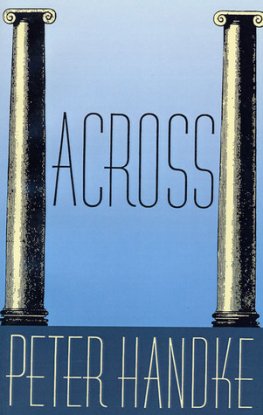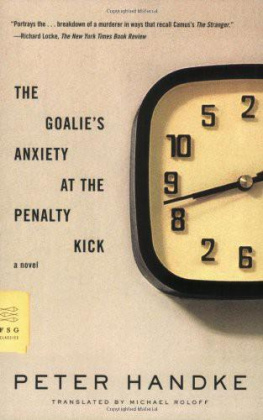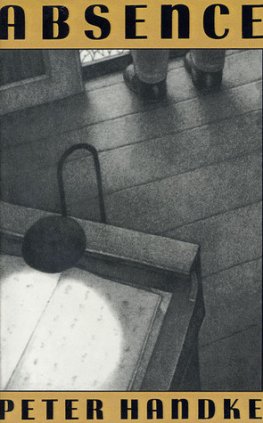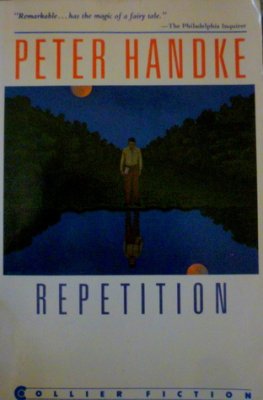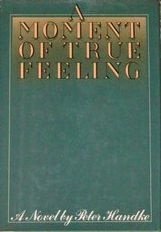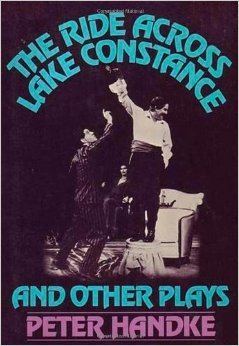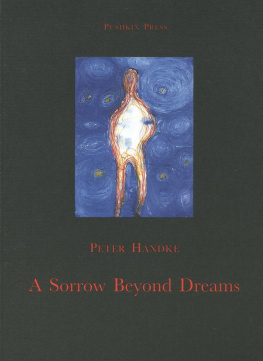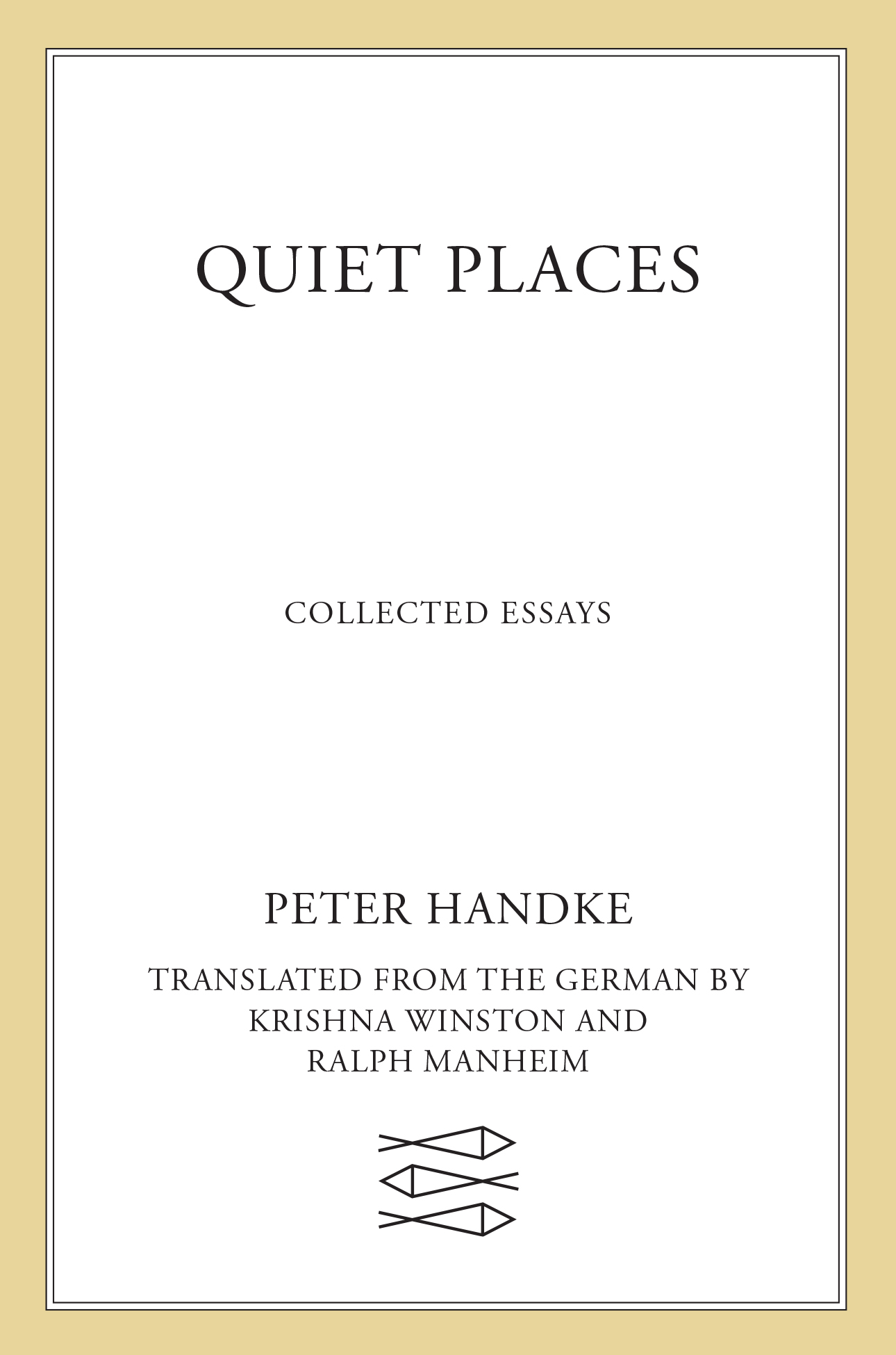Contents
Guide
Pagebreaks of the print version
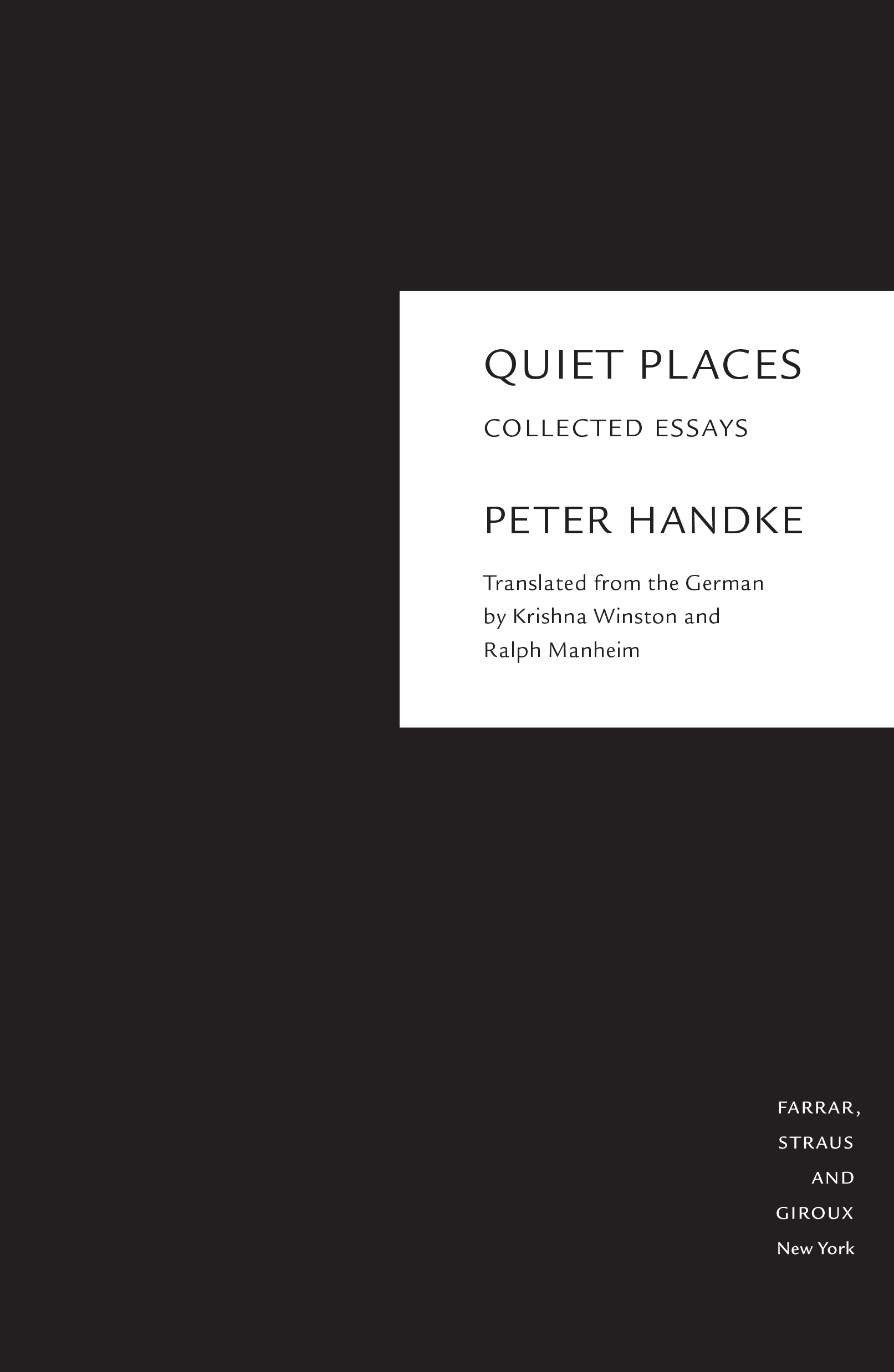
The author and publisher have provided this e-book to you for your personal use only. You may not make this e-book publicly available in any way. Copyright infringement is against the law. If you believe the copy of this e-book you are reading infringes on the authors copyright, please notify the publisher at: us.macmillanusa.com/piracy.
Translated by Krishna Winston
Stilles rtchen, quiet little place,
a German euphemism = privy, outhouse, WC,
restroom, bathroom, toilet, ladies/mens room,
washroom, lavatory, comfort station
Long, long ago I read a novel by the English writer A. J.Archibald Joseph, if Im not mistakenCronin, in a German translation, whose English title was The Stars Look Down. It was a fairly thick book, but its not the fault of the author or his story, which at the time captivated and filled me with enthusiasm, that I remember very few of the details. What has stayed with me, in addition to those stars, always looking down: an English mining district and the chronicle of a hard-up miners family, juxtaposed with the story of the well-heeled mine owners (if Im not mistaken). Much later, when I saw John Fords film How Green Was My Valley, the faces and landscapes fooled me, in a good sense, into thinking, though I knew better, that I was seeing the film version not of the novel by Richard Llewellyn but of Cronins The Stars Look Down. Yet I did retain one detail from the tale of the stars that look down, and this detail haunts me to this day and provides the starting point for my almost lifelong circling and encircling of the Quiet Place and quiet places, and accordingly thats where I mean to begin my essay on the subject.
The detail to which Im referring conveys the following, whether in my memory or in my imagination: one of the heroes in The Stars Look DownI think there are two, children who grow up as the story progresses, one from the wealthy family, the other from the poor familyanyway, one of them makes a habit of taking refuge in the toilet, lavatory, privy, not when he needs to go but whenever the company of othersadults, family membersgets on his nerves and becomes too much for him, a burden and a torment. He locks himself in the water closet (as the name suggests) so as not to have to listen to the incessant jabber, and stays there longer than usual.
The storyor is this now my version?says it has to be the scion of the wealthy family who feels driven to the Quiet Place, and it wants this place to be located far from the parlors and chambers in the manor house, and decrees that the boy does nothing there but listen to the silence. And Im fairly sure its not so much the original story, the novel, as my own version that wants it to be in that out-of-the-way place, away from the family, that the youthful hero conceives the idea and the sensation to which the book owes its title: that when hes there, the stars look down on him. His Quiet Place had no roof, was open to the heavens.
For me, too, the Quiet Place has a story, different in some ways, but analogous to the one Ive just summarized, and a lively and varied one, too, considering the place itself, which is really not monotonous. Now Id like to try to trace the outlines of that story, not filling in the specifics, but parallel and in counterpoint to suggestions for stories and images that several people have sent my way.
It was on the threshold between childhood and adolescence that the Quiet Place began to take on a meaning for me over and above the ordinary and customary. As I sit here at my writing table, far from the sites of my childhood and from childhood itself, and try to remember what toilets were like after the Second World War in East Berlinin Niederschnhausen, part of Pankow, and later the privy on my grandfathers farm in southern Carinthia, only sketchy images come to menot a single one from the cityand besides, and above all, I dont figure in them, not as a child and not as a living being; those images lack any subject that could say I, are disembodied.
Just the usual: thick or less thick packets of newspaper cut into conveniently sized pieces, with a hole punched through them so they could be hung on a string from a nail driven into the board wall, the variant being that the words on most of the pieces were in Slovenian, from the newspaper my grandfather subscribed to, the weekly Vestnik (The Courier). The vertical shaft under the drain hole ran down toward the manure pile outside the cow stalls, or didnt it continue on to a kind of dry well?the distinguishing feature being that the shaft was unusually long, or at least seemed so to me as a child, because the privy was located on the second floor of a farmhouse built into a steep slope in the middle of the village, at the end of a long wooden gallery, where the house and barn came together, and it formed a part or corner of the barn as well as of the gallery, completely unobtrusive, its board walls the same weathered gray as the planks of the gallery and the siding of the hayloft, easy to miss, hardly recognizable as a distinct place, even as a shed, let alone as a privy, since the heart shape traditionally cut into privy doors throughout the region was absent, and the door not even recognizable as suchall you saw was a slight bump-out in the wall where the gallery met the hayloft, which a stranger to the village might well have mistaken for a cubby where my grandfather kept his carpentry tools. Visitors rarely came to the house, however, and the regional agent for the insurance company, Assicurazioni Generale, stopped by at most once a year, and to him, should damage caused by fire or lightning have occurred, a room that small would hardly have counted. What I find striking in any case is the distance between that peasant privy and the main part of the house, whether for everyday use or special occasions; hard to picture, in the Slovenian village of Stara Vas, unlike in the more middle-class market towns down on the plain, someone peeing in a public place as portrayed in a number of seventeenth-century Dutch genre paintings.
But now another special thing about that Quiet Place comes back to me: the light in that little enclosure, which had two sources (without electricity, of course, and I wonder now how the members of the extended family found their way there at night along the dark gallery: with a kerosene lantern? a flashlight? a candle? by feel?). The first kind of light came from above, in the place itself, so to speakshining through cracks in the board walls? No, my grandfather was competent enough as a carpenter not to have left a single crackrather the light came through the wooden walls, through the boards themselves, as if filtered, also through dot-sized holes, hardly as big as the eye of a needle, in the knots, more or less round, where branches had once grown out of the tree trunk; over time these knots had perhaps shrunk more than the rest of the sawn trunk. A strange indirect lighting, found nowhere else in the house; indirect meaning without windows, but all the more substantial; light that surrounded one, by which one found oneself surrounded in the privyone?me; so there was already an I there after all?
And the second source of light? The light that shone into the long vertical shaft from the open-air manure pile below, in the depths, as it were. That light comes up the shaftplease dont expect me to say along with the stench; having no memory of that, I wont mention it. This light doesnt reach the person, me, peering down through the hole, but at most comes halfway up the shaft, no, not even that, hardly a wrist-to-elbows length up, and remaining pooled down below, a substantial shimmer completely different from the one surrounding the person peering down from above, a shimmering probably reinforced by all the yellow from the straw mixed with the cow manure way down there, which makes the inner walls of the shaft visible by following its form, the circle: living geometry, entirely natural. And why does a local anecdote I heard from my mother come back to me now, in which a child presents a basket of well-shaped, gleaming pears to the local clergyman, announcing, Pastor, Im supposed to bring you greetings from my parents and these pears from the shithouse tree!?


